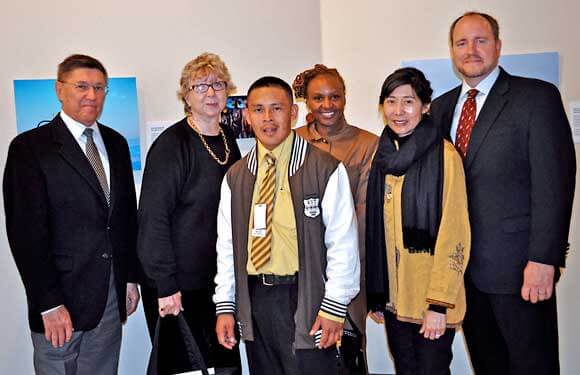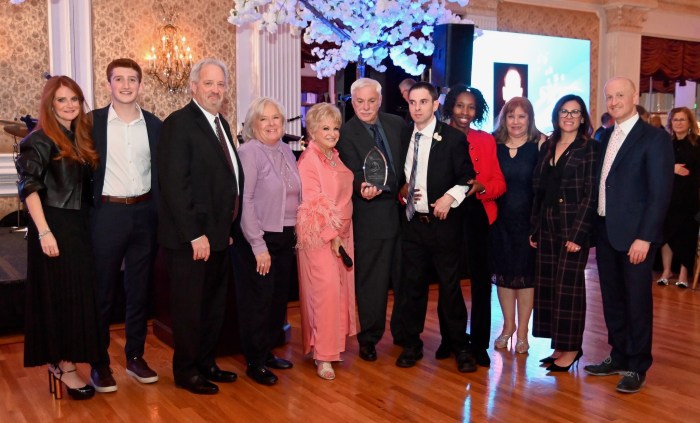Bertie Xavier came far away from his home of Wolletta Village, in the Rupununi Region of Guyana. The Amerindian native was here representing the entire South American continent at the recent United Nations 10th Session of the Permanent Forum on Indigenous Issues.
Gaining international prominence for his people and country, Xavier who is the first to leave his village to pursue a master’s degree at Future Generation College in the United States, said that Future Generations had helped him tremendously.
“I was able to integrate some of the skills and knowledge I gained in making my presentation impactful at the forum,” said Xavier. “It has been a huge opportunity to be a part of an international body that is reviewing recommendations for the Rio 2014 conference in Brazil, to benefit indigenous peoples around the world.
“This experience has impacted my life and advanced my advocacy skills, that will give me a chance to present to agencies, organizations and NGOs in Guyana, to see how best I can integrate these programs when dealing with indigenous issues, especially in the hinterland region.
“I not only learned how to advocate for my community, but for the entire South America community,” said Xavier whose work will benefit indigenous people in many other regions.
As one of a 16-member delegation that attended the initiative, Xavier was presented with a plague – a sort of passing the baton, he said from last year’s members who came from Latin America, Asia, Africa, and Central America.
Xavier who is Toshao Chief of Woletta Village said during his stint at the U.N., he transferred some of his responsibilities to another capable native who he felt confident, will move the village forward.
However, he promised additional support of governance upon his return.
His day-to-day duties in Woletta are to maintain law and order, promote natural resource management and economic development, while maintaining and integrating cultural and infrastructural development.
Xavier holds advocacy meetings and training to influence policy making in an effort to garner support for the work his community is doing in the hinterland.
The Amerindian population, according to Xavier has over the years, received economic and infrastructure development support from the government of Guyana through the Ministry of Amerindian Affairs. The Guyana government also sponsored projects that were implemented during his leadership.
The village variety shop is one such initiative established, and now provides services to the villagers that in the past had to walk long distances for basic needs.
The next community initiative will be an eco-tourism package. But in the meantime, Xavier is calling on the Guyanese community to support the work of the indigenous people.
“This group of students will complete their final residential in Nepal in October of this year, and as such, we are presently recruiting students from Guyana and other countries such as Kenya, Canada, Burundi, Tanzania, Uganda, Eastern Europe Nepal, and India for the next session,” said Waita.



















